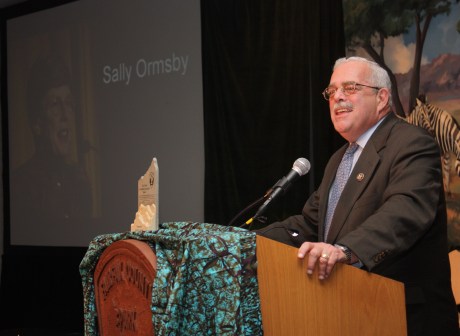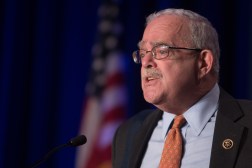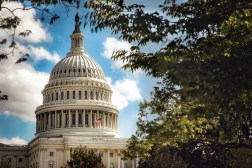The Federal Information Acquisition Reform Act may have been extracted from the National Defense Authorization Act, but the bill meant to overhaul government IT procurement is far from dead.
In fact, folks on Capitol Hill are saying there’s a good chance FITARA will see new movement in the near future.
Co-sponsored by Reps. Gerry Connolly, D-Va., and Darrell Issa, R-Calif., FITARA was tacked on as an amendment to the defense bill. The bill is still awaiting action in Congress, but when the House Armed Services Committee met over Thanksgiving recess and decided on a final draft of the bill, FITARA was left out.
However, Connolly says there’s reason to hope.
“There may be a silver lining to this,” Connolly said in an emailed statement to FedScoop. “In March, FITARA was favorably reported out of committee with unanimous support as a standalone bill, in addition to being unanimously passed by the entire House as an amendment to NDAA in June. Thus, we are confident FITARA carries the broad, bipartisan support that will enable it to be expeditiously advanced through the House.”
FITARA, or H.R. 1232, would reform the laws governing the management and procurement of IT in federal government. Specifically, the bill would establish a center to coordinate the acquisition of IT products, increase authority of the agency chief information officer and the CIO Council, and require additional analysis and reports by federal agencies.
“The federal government needs to be able to build cutting-edge, 21st-century computer systems, but right now we are hobbled by laws written in the days of floppy disks and telephone modems,” Sen. Tom Udall, D-N.M., said in an emailed statement to FedScoop. “We desperately need to modernize the law and especially to incorporate flexibility and accountability.”
According to a Nov. 12, 2013, Congressional Budget Office report, implementing FITARA from 2014 to 2018 would cost more than $145 million. “CBO estimates, however, that any net increase in spending by those agencies would not be significant,” the report said. “Enacting the bill would not affect revenues.”
The CIO section of the bill specifically would cost about $50 billion over the 2014-2018 time period, CBO estimates. It would grant CIOs the authority to hire additional staff, expand the role and responsibilities of the CIO Council as well as the analysis process to justify governmentwide IT procurements.
According to a Hill staffer close to the issue, morale for FITARA is high. The language for the bill has already passed in the House.
“There’s a good cohort of senators behind this bill,” the staffer said. “The fact that they’re interested in these issues is a great surprise.”
Sen. Jeanne Shaeheen, D-N.H., who’s on the Senate House Armed Services Committee, has indicated she wants FITARA pushed forward. The staffer said it will come down to figuring out a version of FITARA most members of Congress share views on and has buy-in for most stakeholders.
“The bottom line is that there is an influential group of members from both sides of the aisle that share the same goals with respect to enhancing how government procures, develops and deploys technology,” Connolly said. ”I am confident that for the first time in nearly two decades, we can work together to fundamentally strengthen federal IT management.”
Connolly also said moving FITARA must be a priority for Congress when it reconvenes in the new year.
His colleague Udall expressed disappointment the amendment was dropped from the defense bill, but said he is “considering the next step forward.”
“This issue needs to be a priority, and as chairman of the Financial Services and General Government Appropriations Subcommittee, I look forward to continuing to work for reforms with my colleagues on both sides of the aisle,” he added.






